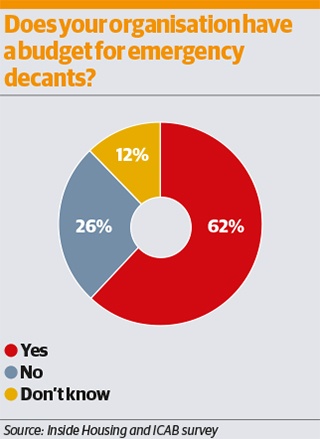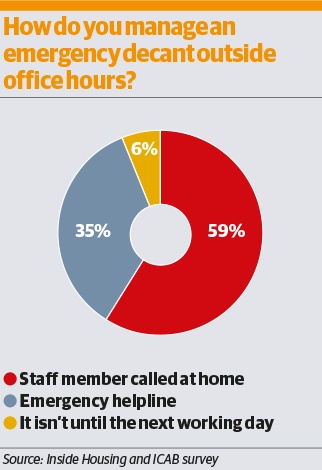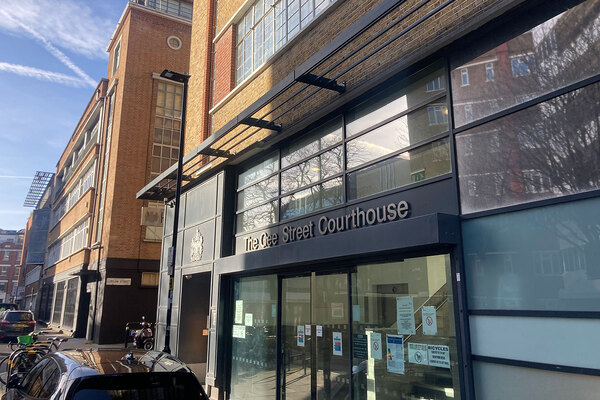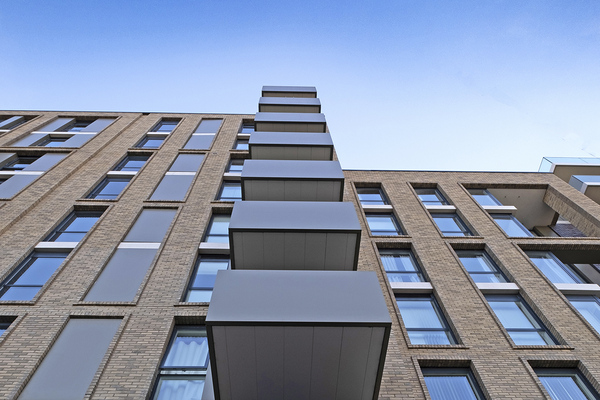You are viewing 1 of your 1 free articles
Covering all the bases
Are landlords fulfilling their duty of care to tenants when disaster strikes? Inside Housing and ICAB carried out a survey to find out
In association with:

Be ready for anything - this is a mantra that social landlords have embraced over recent years. This is all the more important as disaster can strike at any point. Fire, floods or even acts of God can force tenants from their homes and leave landlords in a position where they suddenly have to re-house residents at short notice on a temporary basis.
Inside Housing and the Insurance Claims Accommodation Bureau (ICAB) launched a survey to learn more about how housing providers react when an emergency decant is required. It asked what the challenges were for organisations and how processes could be improved.
Eye-opening results
Fifty respondents responsible for arranging emergency alternative accommodation in their organisations completed the survey, and the results were eye-opening in many ways.
When asked under what conditions they would consider seeking emergency alternative accommodation for tenants, the majority of respondents were quick to state that their organisation would step up to temporarily re-home tenants.
All participants said that major flood or fire damage to a property would see them seek new lodgings for their tenants. Impact damage to buildings (96%) and natural disasters (96%) were two other significant areas where decants were likely to be enforced.
Perhaps unsurprisingly, social landlords were more reluctant to move tenants out for what are perceived to be less significant issues, such as minor fire damage (33%) and minor flood damage (18%).
Chris Eyre, housing allocations and options manager at Broxtowe Borough Council, says it’s important to have a nuanced approach to decanting tenants.
“We place people into alternative accommodation as a temporary measure when it’s not safe for them to remain,” he says. “For example, two years ago we had an issue where a mains water pipe burst in one of our areas, and a lot of properties were flooded, so a few were placed in temporary accommodation.”
Costs incurred can quickly multiply when moving tenants out of their homes, but 26% of respondents reported that their organisation doesn’t have a budget for emergency decants.
Alisa Gold, marketing and business development manager at ICAB, says it’s particularly surprising that many housing providers don’t appear to have a budget in place.
“Running an organisation and putting nothing aside for contingencies makes no sense,” she says.
For the organisations that did have a budget in place, 58% had no strict budget per tenant per night. For the ones which did have a strict budget, 16% say they spend £50 and under per tenant per night, with 10% aiming between £51 and £100.
Mr Eyre says Broxtowe Borough Council aims to spend less than £50 per tenant per night on accommodation, but this isn’t always possible due to fluctuating hotel and B&B prices.
“Seasonal adjustments have to be made. For instance, something could be happening in Nottingham over a particular weekend where the hotels that we use are all booked up. We’d have to move to higher-end accommodation so the expense would increase on that,” he says.
In fact, the survey reveals that there are a number of challenges that housing organisations face when it comes to sourcing suitable emergency accommodation.
The results suggest that the biggest challenges are around identifying appropriate accommodation for those individuals with disability/mobility issues (83%) and for those with pets (77%).
Ms Gold says this view echoes the challenges its customers have. It is an area in which the organisation has sought to invest in recent years.
ICAB has recently launched the ICAB Pod - a self-sufficient, free-standing kitchen or bathroom pod that can be placed on driveways as an alternative to having to uproot tenants with specialist needs. “They have been very popular with people with mobility issues,” Ms Gold adds.
Preparing for disaster
As many social tenants do have specialist needs, it’s important for landlords to ensure there is always a solution in place to decant tenants in an emergency. But as most organisations operate offices which are only manned from 9am to 5pm, what happens when a tenant calls up with an emergency in the middle of the night?
The results reveal a significant variance in provision for such eventualities. Only 35% of respondents said that their organisations had an emergency helpline to manage urgent decants out of office hours. In 59% of cases, a staff member would have to be called at home to deal with the matter.
“There’s no reason why in this day and age you can’t have an outsourced emergency helpline,” says Ms Gold.
“It’s really a crazy situation where a staff member… is being called at home who probably has very little knowledge in terms of how to deal with emergency accommodation.”
Even more worryingly, 6% said that any issues wouldn’t be dealt with until the following working day.
Kianne Davies, an experienced housing officer who has worked for a number of housing organisations in London, stresses the importance of having a system in place which works.
“In one instance a housing association had its properties flooded and a tenant rang the out-of-hours line and they said they couldn’t help him. It got flooded on a Saturday, and the tenant had to wait until the Monday. Naturally, he was fuming.”
She adds that in her experience it is usually the smaller housing associations which don’t have these safeguards in place. “They have these emergencies once in a blue moon, and when it happens they haven’t got a clue how to react.”
By comparison, Broxtowe Council has a clear process for ensuring that emergency decants are managed in a timely fashion. An out-of-hours phone line will book tenants into emergency hotel accommodation with minimal fuss. The council believes it’s more important to get tenants decanted in an emergency that night, rather than the following working day.
“For a high percentage of the cases that come through, there is a genuine reason for needing alternative accommodation,” Mr Eyre says. “For the sake of £50, it’s not worth taking the risk.”
On the evidence of these survey results, it is clear that many social landlords still have some way to go to prove they are delivering efficient and effective safeguards for tenants should disaster strike.













